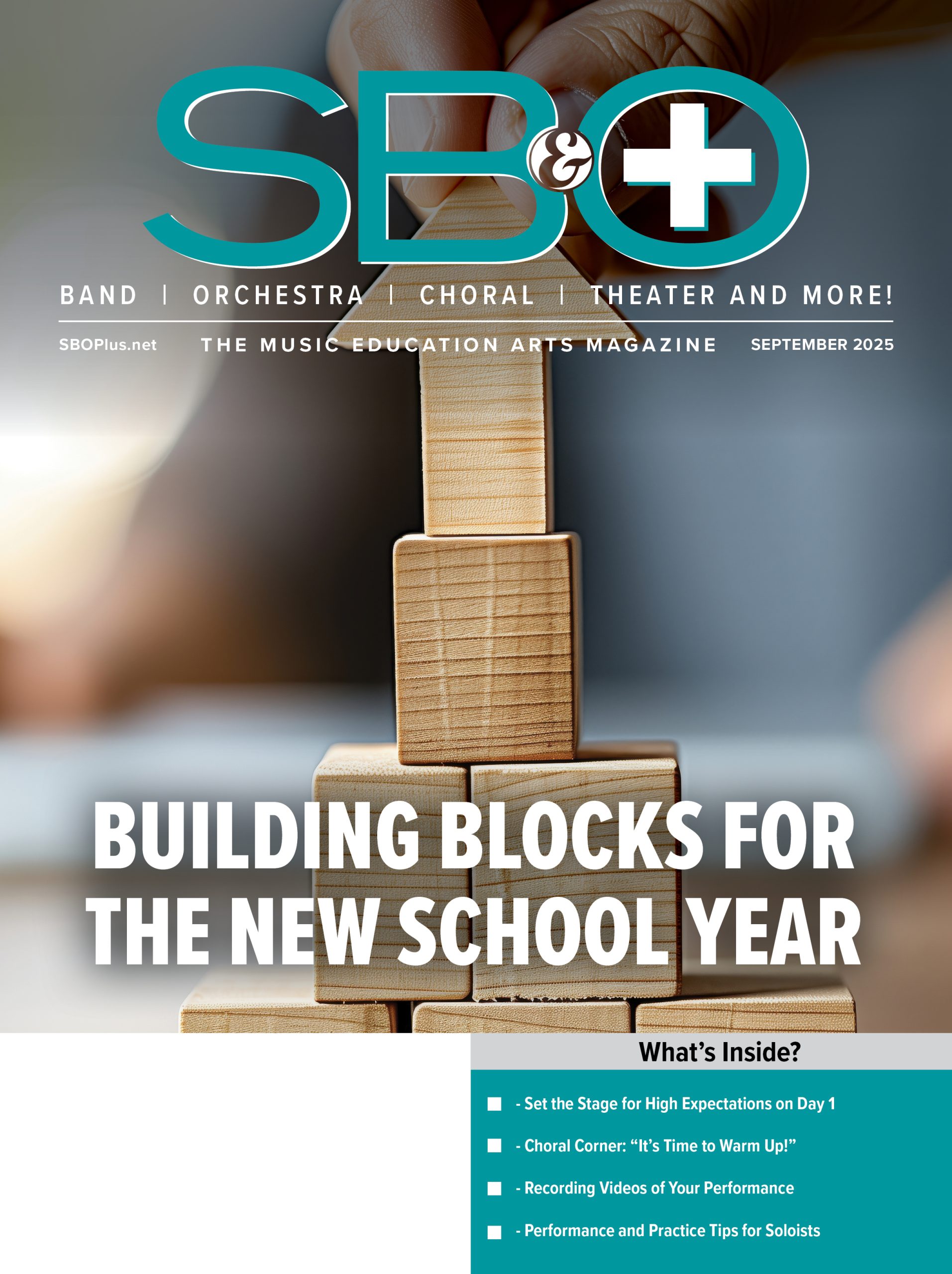 How do you move your modern band forward once they have mastered the basics? Below are a few ideas to help guide your group to its advanced level.
How do you move your modern band forward once they have mastered the basics? Below are a few ideas to help guide your group to its advanced level.
Sing the form!
When introducing a new tune, teach students to sing the root of each chord by using the same syllable or a chord number. When students sing through the form of a tune, it helps them to internalize the music.
Good music will always sound great.
When considering music for any ensemble, ask yourself the question: How will MY students sound playing this piece? Audiate the music by using your mind to imagine what your specific students would sound like playing each tune you are considering. Can you hear specific students in your ensemble performing the tune? If you can’t, keep considering tunes until you can truly “hear” your students playing it. Allow students the opportunity to select music, too. Encourage them to find versions that were recorded live. Help students to understand that most likely their performance of the tune will closely mirror a recorded live version. When you are nearing performance time, ask students to narrow down the setlist. Then from that point, have them analyze the live recordings of the tune for the standard performance elements of rhythm, melody, pitch, tone quality, and expression. Ask the students: “Is our live performance of the tune similar to the recorded version?” Finally, when choosing music for your modern band, remember that good music will always sound great. There’s nothing wrong with picking one or two tunes that have stood the test of time.
The chromatic scale and circle of 4ths are essential.
Students should learn to think, say, and play the chromatic scale. After the chromatic scale is memorized, guide students through the circle of 4ths by having students play the root of each key. It is critical that students memorize and can smoothly play through the circle of 4ths with ease. This memorization pattern will help students better understand the relationship between chords and learn tunes at a faster rate. After playing the roots, I recommend that students master the major scales, triads, 7th chords, etc.
Keep the music as authentic as possible.
Think of the great lengths we go to achieve the appropriate instrumentation for our classical repertoire. We should attempt the same goal when it comes to our modern band, too. Does the music you are working on use synthesizers? Does the music use sound effects? If it does, then you should strive to use those same or similar sounds with the band.
Have quality bass sounds.
The quality of the bass sound that your group produces is important. If needed, upgrade to a higher-quality bass amp to elevate the sound of your group. Also, consider the other bass sounds that are relevant. Does the tune use a drum machine? If so, consider using a drum machine in your ensemble.
Rehearse everything!
Do not take for granted that young musicians know how to execute certain elements of a performance. Do not overlook the smallest details. Therefore, it is important that students rehearse the stage entrance and exit. Help students to line up according to their placement on the stage just as you would for your concert ensembles. Be sure that students practice speaking parts for the performance as well. Lastly, make sure that you’ve observed every detail of the scheduled performance. Remind students of the following phrase: “If you didn’t do it in rehearsal, don’t do it in performance.”
Teach them how to move!
Teach students how to move to the music. Moving to music allows students to play with more expression. Encourage students that it is okay to move to music. Model movement for them. If students are going to teach dance moves, make sure that they define the movement in small details.
Record your group often.
Audio recordings are priceless. This will help students to hear their progress. Consider a rehearsal in which you and your students only analyze audio recordings. Make a video recording as you near performance time, too. Guide students through an analysis of the visual elements of their performance.
Get help from the pros.
Is there a non-profit in your area that offers a musician residency? When you invite a guest musician to your class for a clinic, somehow things that you have said to students magically solidify. If a residency isn’t possible, consider asking a musician to give your ensemble feedback via Zoom. Are there alumni musicians performing professionally around town? Consider asking them to return to give a clinic or offer a few words of encouragement to your ensemble.
If you experiment with these tips, your modern band will be jammin’ at a higher level in no time!
Shemeka Nash is the artistic manager of Sistema Ravinia located in Chicago, Illinois.





























